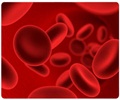Snake venom-based antiplatelet drug could prevent bleeding risk associated with currently available antiplatelet drugs.
- Antiplatelet drugs are used to prevent platelet aggregation and can be used for treating heart diseases.
- Scientists have found a new and safer antiplatelet drug based on snake venom.
- The newly designed molecule could help to prevent side effects like excessive bleeding, which is observed in the antiplatelet drugs used at present.
The study was published in an an American Heart Association journal, Arteriosclerosis, Thrombosis and Vascular Biology.
Snake Venom to Develop Drugs
The research team found that Trowaglerix, a protein in the venom of the Tropidolaemus waglerix snake has the ability to stimulate platelets in the formation of blood clots by fastening GPVI.Previous studies have shown that platelets missing GPVI will not form blood clots in patients and may not lead to severe bleeding. More recently, scientists thought that blocking the GPVI could help to prevent blood clotting and also avoid the side effect of prolonged bleeding.
Designing New Molecule
The research study is the first to design a molecule that is based on the structure of trowaglerix to block the GPVI activity.The molecule was found to prevent the platelets from clotting when it was mixed with blood. When the new drug was administered to mice, it had a slower blood clot formation than the untreated mice.
What are Platelets?
Platelets are born in the bone marrow and are released into the circulating blood. Around an average of trillion platelets survive for a week in an adult patient.They are actually capable of instantaneously plugging to the bleeding sites by sticking on to a wound that becomes activated locally and then attracting other circulating platelets to build an impermeable clump at the point of damage.
Antiplatelet Drugs
Aspirin, used commonly to treat pain and fever, was found to be effective for the treatment of heart attacks due to its action on platelets.Another class of antiplatelet drugs that were used are called ADP receptor antagonists like ticlopidine, clopidogrel to reduce the occlusion of coronary stents.
However, currently available antiplatelet drugs target another protein called glycoprotein IIb/IIIa. These drugs were based on another protein that is found in the snake venom. But the reason for excessive bleeding as a side effect is not fully understood.
The novel molecule designed from snake venom could be efficient in developing a new, safer class of antiplatelet drugs with limited bleeding.
Further drug testing in animals and humans is required before it can be used in patients.
Jane Tseng, Ph.D., director and professor at Graduate Institute of Biomedical Electronics and Bioinformatics and Drug Research Center at the National Taiwan University, said, "In general, this type of molecule design does not last long in the body, so techniques like formulation or delivery system are likely needed to extend the exposure time in the human body."
"The design must also be optimized to ensure that the molecule only interacts with GPVI and not other proteins which can cause unintended reactions."
He also added that efforts to improve the molecule’s design are underway.
References:
- Chien-Hsin Chang, Ching-Hu Chung, Yi-Shu Tu, Cheng-Chieh Tsai, Chun-Chieh Hsu, Hui-Chin Peng, Yufeng J. Tseng, Tur-Fu Huang et.al., 'Trowaglerix Venom Polypeptides As a Novel Antithrombotic Agent by Targeting Immunoglobulin-Like Domains of Glycoprotein VI in Platelet,' Arteriosclerosis, Thrombosis, and Vascular Biology. (2017); https://doi.org/10.1161/ATVBAHA.116.308604
- Antiplatelet Therapy - (http://www.hematology.org/About/History/50-Years/1525.aspx)











